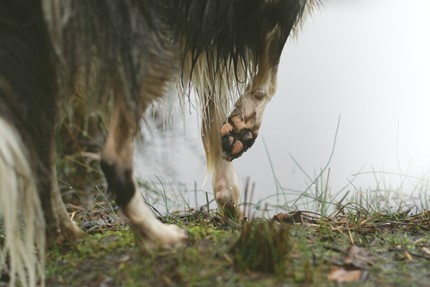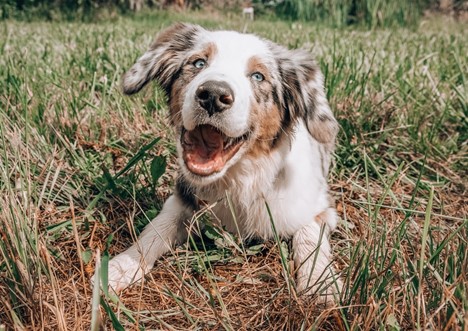Weather Safety Tips for Pets

Use Our Guide To Protect Your Pets No Matter What The Weather
Learning to prepare for the unexpected and protect our homes and families
from extreme weather conditions is a natural instinct for many. In extreme heat, we know to stay
hydrated, stay in the shade, and protect our skin from the sun’s exposure. In extreme
winter weather, we know to stock up on non-perishable food,
water, and other emergency preparedness items.
Although it can feel like second nature
to prepare ourselves, it may not always occur to us to prepare for our pets. Here are some helpful tips for protecting our
furry friends from extreme
weather conditions.
In the Cold

Unless you have strictly indoor pets, you will likely need to let them out multiple times a day. During the colder months, it’s a good idea to try and schedule these trips during the day, when temperatures will be at their highest. Once the sun goes down, temperatures drop significantly which can be harmful and even painful to walk on with bare paws. Not only can the ice be painful to walk on, but the chemicals in certain ice melting salts and deicers can cause skin irritation. It’s best to wipe their paws with a clean damp washcloth to remove any chemicals when returning inside. You might also consider purchasing pet socks or booties to help keep their paws warm and safe during play time and on walks.
During a Thunderstorm

It is not uncommon to find that
your pets are afraid of thunder and lightning. Animals
tend to have a heightened sense of hearing compared to our own. With that in
mind, it makes sense that loud noises can trigger fear in some animals. If left
outside during a storm, your pet can become disoriented
and may even run away or become lost. If your pet is especially skittish during
storms, it is a good idea to
keep anti-anxiety medication on hand as well as a weighed “thunder” blanket to
help them stay calm. You also might consider setting up weather related alerts on your phone, that can warn you about upcoming
storms, giving you time to keep your pets inside where they are comfortable and safe.
In the
Heat

Just like us, our pets tend to
need more water when it’s hot. Unfortunately, they may not be able to
effectively communicate this to you. It’s important to be proactive by
providing an ample amount of water to your pet as well as to
recognize the signs of dehydration. For example, common signs of dehydration in
a dog are a dry mouth and nose, intense panting, thick or pasty
saliva, and lack of appetite. It is crucial to keep your pet well-hydrated, especially
during times of extreme heat.
Heat will be at its most intense between
noon and 3:00 PM. It is best to keep your pet inside or in the shade during these
hours. In days of extreme heat, it is a good idea to plan outside playtime during the early morning hours or later in the evening.
In addition, it’s important to
remember that dark colored objects absorb heat quickly and will be hot to the touch. Be careful when walking your pet on pavement during
extreme heat, as it can cause pain and damage to your pet’s paws. A good rule of thumb when it comes to hot
pavement is to place the palms of your hand to the pavement and hold them
there for five to ten seconds. If it’s too for you to keep your hands on
comfortably, then it’s too hot for them to walk on.
Weather conditions affect all of
us, including our pets. Check out this downloadable pet- safety weather guide with tips on how to best
protect your pet in the heat, cold and during a storm. Hang it on your fridge
to refer to when needed, or to teach your family the basics! It’s important to
plan ahead and know how having pets may affect other aspects of your life, like
your home or renters insurance. Check
out the link below to learn more.








